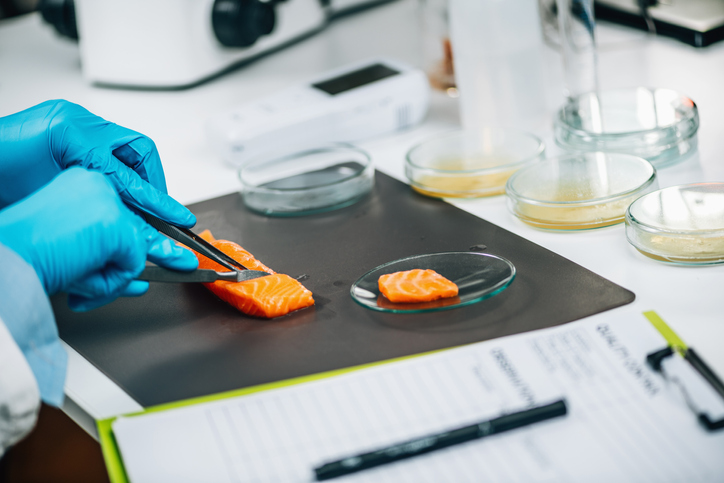Microbiology is the study of microorganisms, their impact on the environment, and their effect on human physiology. When it comes to the food industry, microbiologists perform essential work on the front line of food safety. These professionals study foodborne pathogens and assess whether food products comply with health and safety regulations. Food microbiologists may work in product development and quality control for food manufacturers, governments, or research universities.
A career as a food microbiologist attracts skilled individuals with a natural interest in scientific disciplines, attention to detail, and a flair for problem-solving work. You should be comfortable working in a laboratory environment and communicating your research findings with other members of your team. For those interested in exploring a career as a food microbiologist, read on to discover what to expect in the professional workplace.
Responsibilities of a Food Microbiologist
Food microbiologists ensure that food products comply with government health and safety regulations. Their primary goal is to understand the transmission of foodborne diseases in order to prevent their occurrence. As a food microbiologist, you’ll examine samples of food, testing them for the presence of salmonella, listeria, and other microorganisms that cause illness in humans. Food microbiologists share their findings with fellow researchers, food producers, and the general public to promote effective health and safety practices.

Food microbiologists study the transmission of foodborne pathogens
The daily work of a food microbiologist may include:
- Researching how microbes affect food
- Studying food spoilage and methods of preservation
- Establishing food legislation
- Studying the processing and packaging of foods
- Recommending improvements for food manufacturers
A food safety program will provide students with the specialized knowledge required to implement the fundamental principles of quality assurance. Trained food microbiologists will play a key role in the food and beverage industry by guiding producers on how to control the contamination of food to ensure consumer safety.

Professionals with food safety training are involved in implementing food legislation
A Look at the Work Environment
Food microbiologists are equipped to work in various industries and professional environments. Most of their work will be conducted in a laboratory or testing facility, where they may perform research, product testing, or advance to a management positions to oversee other scientific projects. Food microbiologists are primarily hired by government labs or organizations that carry out research concerning food spoilage and preservation. Additionally, they may work for nonprofit organizations involved in promoting public awareness on food safety and food product regulation.
After food safety training, food microbiologists may find work in:
- Food and beverage manufacturing companies
- Food ingredient suppliers
- Private research companies
- Federal and provincial government agencies
- International food agencies, such as WHO
By building experience and education, food microbiologists may advance to careers at the management level where they may lead research teams and control the direction of regulations in the food industry.

Food microbiologists are comfortable working in a laboratory or testing facility
How Food Safety Training Can Help
The demand for trained professionals in this field remains strong, as food microbiologists are needed to develop new methods of preservation and techniques to detect contaminating microorganisms. A food safety course will help students develop a hands-on approach to food safety and quality that is needed for career development in the food and beverage industry.
A tailored course will introduce students to factors affecting microbial growth, the characteristics of emerging food pathogens, and rapid methods of detection of foodborne microorganisms using laboratory methods. Regardless of the level of expertise you wish to reach, gaining a solid background in food microbiology, processing, product development, and regulations is essential to securing a successful career.
Are you ready to earn your food technology diploma?
Contact the Academy of Applied Pharmaceutical Sciences today!




